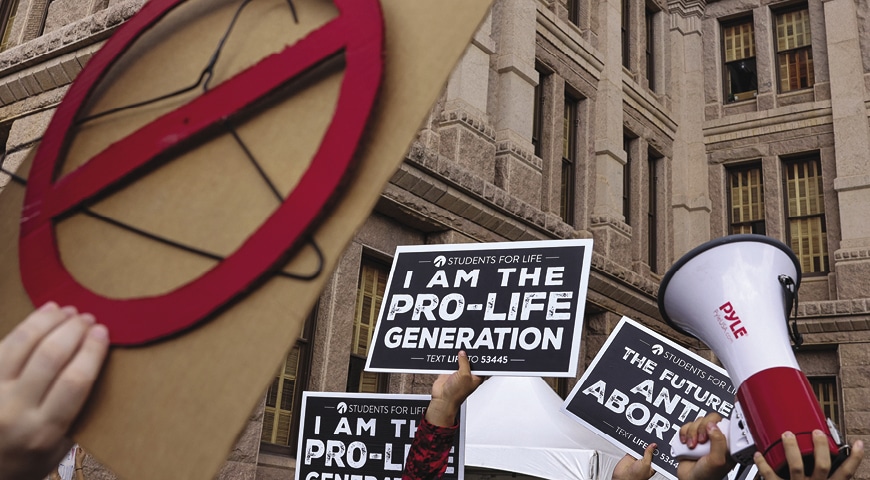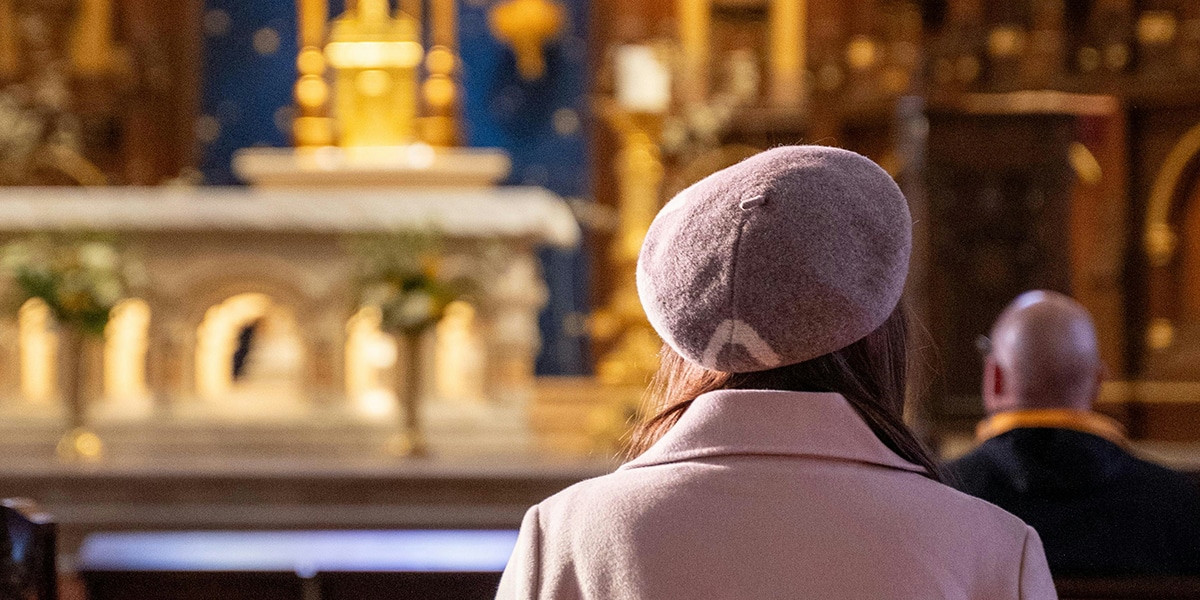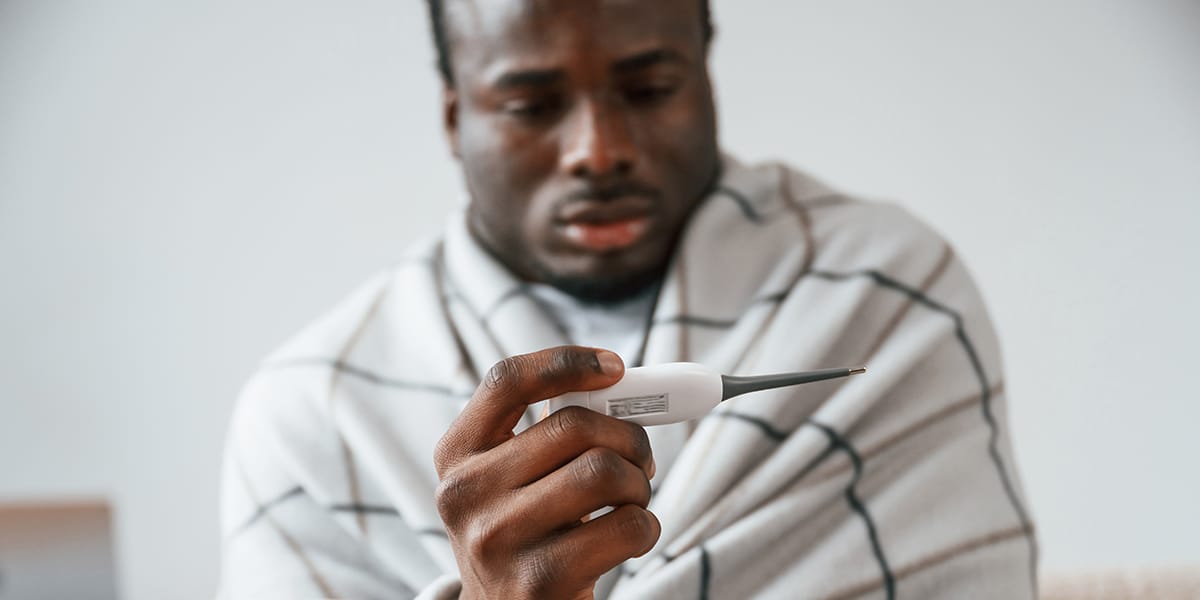We may find common ground on pro-life issues when we expand our view to include other pressing social problems.
American Bishops are struggling with the idea of “eucharistic coherence.” The issue presented to them is, in a nutshell, what to do about politicians (most obviously, the observant Catholic President Joseph Biden) who hold a pro-choice position on the question of abortion. Should they be subject to some as-yet-to-be-defined discipline?
The argument put forward seems very simple to a portion of American Catholics: How can you square what the proponents of this move term “support for abortion” with a Catholic faith that teaches abortion to be an “abominable crime” (Catechism of the Catholic Church, 2271)?
On the other hand, many Catholics see the move as an attempt to politicize and even weaponize the Eucharist on behalf of a shortsighted political agenda that does not deal with the enormous social, political, theological, and moral complexities of the American Church.
Among this latter group would appear to be the pope himself. In a recent interview, when he was asked about “bishops who want to deny Communion to the president and others who hold office,” Pope Francis flatly declared: “I have never refused the Eucharist to anyone, to anyone. I don’t know if anyone in that condition came, but I never, never refused the Eucharist. As a priest, that is. Never.”
Pope Francis then added: “The problem is not the theological problem—that is simple—the problem is the pastoral problem: How do we bishops deal with this principle pastorally? And if we look at the history of the Church, we will see that every time the bishops have dealt with a problem not as pastors, they have taken a political stance on a political problem. . . . What must the pastor do? Be a pastor. Be a pastor and don’t go around condemning. . . . But if he goes out of the pastoral dimension of the Church, he immediately becomes a politician: You see this in all the accusations, in all the non-pastoral condemnations the Church makes.”
I am not a bishop and will not presume to tell them their job. But I am, I hope, a faithful member of the flock—as well as a citizen of the United States charged by the Church with the job of actively participating in our democracy. As a layperson, it actually falls to me, far more than to the Church’s shepherds, to do the work of sanctifying the secular order. I do this out of a desire to protect human life from conception to natural death as the Church teaches.
At the altar, the priest presides. But in the world, we laity preside. So when the bishops contemplate barring a president of a secular nation-state from the Eucharist on the grounds of “eucharistic coherence,” this directly impinges on what the Church itself declares to be my proper sphere of authority as a layman and citizen called to involvement in our political process.
A Historical Perspective
First, a brief discussion of the Church’s abortion policy is in order. It is a popular myth among some Catholics that to vote for the left side of the spectrum is to “support abortion” and thereby make oneself worthy of the fires of hell. The simplistic formula at work here is: Liberals promote abortion while conservatives fight it. Therefore, there is a moral obligation to vote conservative.
In fact, America’s abortion policy is the creation of a Supreme Court that has been dominated by Republican appointees since 1970. The historical truth is that every Democratic appointee to the Court could have been golfing on the day Roe v. Wade was decided, and it would have made absolutely no difference to the outcome of the ruling. Moreover, when the biggest entrenchment of abortion law since Roe—the 1992 Casey decision—was made, the Court that made it consisted of eight GOP appointees along with a Democratic appointee who was pro-life. In short, our abortion policy is a completely Republican creation.

As a Catholic who believes human life should be sacred and honored from conception to natural death, what am I to do? And what would I like the bishops to do?
This brings us to the next point. While it is true that those on the left tend to favor a pro-choice position, it is not true that they “promote” abortion. What they do is maintain a GOP-created and -entrenched system that permits—not compels—private citizens to have an abortion. There is no state-ordered abortion program. This is neither the Nazi regime mandating the death of the “unfit” nor the People’s Republic of China compelling women to abort.
Our abortion policy is, in fact, a triumph of libertarian thinking and the free market. Women can abort or not as they wish. To speak of “promoting” abortion, as though it is ordered by either the president or a politician, is to radically distort language. In fact, what drives abortion is not the state but economic pressure.
Abortion is primarily pursued as an economic relief valve by women who feel they cannot afford to raise a child. The number one abortifacient in the United States, according to the Guttmacher Institute, is poverty. To that degree, the “pro-choice” position is a misnomer, not because liberals compel it but because certain right-wing policies that are economically hostile to poor families do. Large percentages of women abort not because they choose to, but because they feel they have no other choice.
By the Numbers
Abortion rates rose from 1973 to 1980, during the tenures of two pro-choice GOP presidents and one Democrat who was on record saying that Jesus would not support abortion in most cases. Abortion rates slowly declined during the Reagan/Bush years, though these presidents would consistently appoint to the Supreme Court justices who would form the backbone of entrenched support for abortion rights in the Casey decision.
But suddenly there came a precipitous drop in abortion rates in the 1990s. The reason had nothing to do with the Court. It was due to Clinton-era policies that took economic pressure to abort off lower-income women. Far from “promoting” abortion, the goal during the Clinton years was, in the words of the administration, to make abortion “safe, legal, and rare.” And the numbers show that Clinton’s policies, in fact, achieved the pro-life goal of reducing abortion.
In other words, what the Clinton administration chose to do was to leave in place the abortion policy that was the creation of Republicans and not attempt to interfere with the supply of abortion, but to instead tackle the problem of demand.
This would be the same tactic used by the Obama-Biden administration. And in both cases, abortion rates saw their steepest declines since Roe. Not until Trump (who, by the way, also raised funding for Planned Parenthood to historic levels) did abortion rates rise because conservatives, as they have historically done, pursued policies that punished the poor. If we want to speak about “promoting” abortion, that is where the problem lies. What promotes abortion is not supply but rather economic pressure that creates demand.
If we want to effectively fight abortion as opposed to merely talking about it, then a committed, pro-life Catholic voter like me concludes—with a completely clear conscience—that he not only may, but must, support the policies of Obama/Biden.
What Do Americans Want?
This brings us to the next problem that politicians such as Biden (and pro-life voters like me) face as pluralistic Americans living in a representative democracy: the paradox that legal abortion is among the most popular things Americans loathe.
It’s like this: Precisely because there is a demand for abortion created by a host of economic and social pressures on women, only 13 percent of Americans want abortion to be outlawed. At the same time, only 21 percent want “abortion on demand without apology.” Meanwhile, 60 percent of Americans feel deep discomfort with abortion, but do not want Roe to go anywhere.
That 60 percent in the middle is a huge, fluid demographic of people who find abortion distasteful and repugnant, but who have no intention of telling some petrified teenager that she must carry her baby to term even if her parents disown her or her boyfriend ditches her (as well as a million other crisis scenarios you can easily imagine). The result is citizens who insist on maintaining some form of legal abortion and, at the same time, eagerly hope they never have to hear about abortion again. That means that both proponents and abolitionists can truthfully say that some 75–80 percent of Americans side with them in both opposing abortion and wanting it legal.
Our political discussions are built around that ambiguity. Neither party wants to do anything to get rid of our abortion policy for one very good reason: Americans don’t want them to do that. But both know how to exploit the fears and angers of their base in order to keep milking them for votes with promises of (and dire warnings against) imminent abolition, even though both parties know that is not going to happen.
Eucharistic Coherence: More Than Abortion
As a Catholic who believes human life to be sacred from conception to natural death, what am I to do? And what would I like the bishops to do?
To start with, I take as a given that, for the foreseeable future, abortion will remain legal. But the idea here is not to “support the lesser evil” (we can never do that), but to lessen evil, to reduce it, to do what is possible.
I applaud the idea of “eucharistic coherence.” But what I want to see is not zinging one Catholic politician about abortion. The claim that the Catholic Biden, acting as a secular politician in a secular democracy, is somehow confusing the world about what the Church teaches concerning abortion is, to put it simply, nonsense. Everybody on planet Earth certainly knows that the Church opposes abortion. What they are confused about is not the Church’s teaching about the dignity of human life from conception, but the Church’s teaching about any form of life that gets in the way of what American conservatives want to do.
Eucharistic coherence includes being against war and torture, against the death penalty, against injustice at our southern border. Eucharistic coherence includes care for all people, regardless of race, creed, sexual orientation, or any other type of division. Eucharistic coherence is incompatible with insurrection in our nation’s capital.
As a lay voter, I don’t need to be reminded that the Church opposes abortion. I know. I agree. I have for decades. What I want to see is the Church (clergy and laity) really presenting a full-orbed and coherent picture of Catholic teaching that is more pro-life, not less; more eucharistic, not less.

Instead of turning the Eucharist into a sort of reducing valve designed to cut people off from grace, I would much rather see grace extended as fully as possible through the Eucharist to every person, born and unborn, in the Church’s pastoral preaching.
For the past 15 years, many Catholics have claimed that the Church teaches that abortion is a so-called “nonnegotiable” issue while such things as war, torture, a living wage, climate change, racism, police violence, sexual abuse, the dignity of marginalized people such as LGBTQ individuals or refugees, the death penalty, murderous insurrection, and a host of other pressing questions are “prudential matters” and therefore trumped by abortion.
The practical result of this claim (nowhere attested by the magisterium) is that the unborn are pitted against rather than related to nearly the whole of the Church’s social teaching and the people it aims to protect. Indeed, in many cases, support for the Church’s social teaching is often sneered at by self-identified “pro-life ” advocates, as though objecting to the death penalty, or climate change, or the kidnapping of children at the border necessarily makes one “pro-abortion.”
This must cease. Jesus, fully present in the Eucharist, offers his body, blood, soul, and divinity—his very self—for every human being from conception to natural death. Therefore, any attempt to pit the unborn against all the other forms of human life Jesus loves and cherishes is incoherent.
More than this, the Eucharist—which is Jesus himself—must not be turned into a thing: a lucky talisman for blessing one party and withholding favor from another.
Don’t Weaponize the Eucharist
As a pro-life citizen, I oppose abortion. I always have. I voted for Biden because I am pro-life and knew that his policies would, as they did from 2009 to 2017, lower abortion rates. I did not vote for him because I “support the lesser evil” (I repeat: no Catholic can do that) but because I sought to lessen evil.
More than this, I believe Catholics must provide a credible witness to those who do not share our conviction about the unborn. The way to do that is to relate the unborn to—not pit them against—all those people menaced by the threats many non-Catholics rightly care about.
In addition to the unborn, we must bear witness to the Church’s teaching on the dignity of the lives of victims of climate change, racism, poverty, hatred of LGBTQ individuals, capital punishment, sexual abuse, and a host of other issues. Every time the unborn are pitted against all these other sorts of human beings instead of related to them, true eucharistic incoherence occurs.
Instead of turning the Eucharist into a sort of reducing valve designed to cut people off from grace, I would much rather see grace extended as fully as possible through the Eucharist to every person, born and unborn, in the Church’s pastoral preaching. Instead of beginning every discussion of the Eucharist with “Who do we get to exclude?”, we should, like Pope Francis, preach the good news of the grace and mercy of Christ to every person from conception to natural death.
Coherence or Confusion?
What does Eucharistic Coherence really mean? To be coherent with Catholic social teaching, the following cases should be considered as violations of the Church’s pro-life teachings on a par with abortion.
- In the ramp-up to the Iraq War, noted Catholic “pro-life” conservatives like Michael Novak pushed for an unjust war rejected by two popes and all the bishops of the world. There was no push to punish advocacy of mass murder as eucharistic incoherence.
- During that war, EWTN’s Raymond Arroyo more than once offered apologetics for the Bush administration’s use of torture, an act every bit as incoherent with the Eucharist as a celebration of abortion.
- In 2018, Nebraska Catholic governor Pete Ricketts vowed to continue killing prisoners on death row despite the legislature moving to ban capital punishment and the Church calling for its global abolition—and despite the estimate that 4 percent of death row prisoners are innocent. The eucharistic incoherence of killing innocents in order to unnecessarily kill guilty people went unchallenged.
- TV host Laura Ingraham, who is Catholic, mocked refugee child detention facilities as “essentially summer camps.” The eucharistic incoherence of laughing off kidnapping and jailing children went unchallenged.
- Austin Ruse, president of the Center for Family and Human Rights (C-Fam), celebrated the murder of George Floyd by tweeting, “Just a reminder that George Floyd has gone five weeks and two days drug free.” He also tweeted support of his nephew for being a member of the White supremacist Proud Boys group and declared, “We need more not less toxicity.” No calls for eucharistic coherence resulted.
- John Eastman, chairman of the board of the National Organization for Marriage, authored the proposed plan for the Trump administration to overthrow the results of the 2020 election, as well as helping to foment the insurrection on January 6, 2021. Eucharistic incoherence was not invoked over this massive public scandal.








